In the new world of Andrew Tate, hardcore pornography and rape culture, sex education is very different to the days when it conjured up images of a hapless teacher trying to put a condom on a banana.
That is why Matilda Lawrence-Jubb decided to name her relationships and sex education (RSE) company Split Banana: for her, modern sex-ed should be about “splitting away” from the ways of the past.
But RSE is now facing another crisis. The government is bringing forward a review of sex education in schools amid a media storm over claims that children are being taught that there are “over 100 genders” and learning about “rough sex” from external educators.
RSE has come a long way in the past 20 years. Schools were only permitted to talk about the existence of gay people in 2003, with the repeal of Margaret Thatcher’s section 28 laws. RSE only became a compulsory part of the secondary curriculum in 2020.
And, in a bid to stamp out the current wave of Tate-inspired misogyny, demand from schools for RSE experts appears never to have been so high.
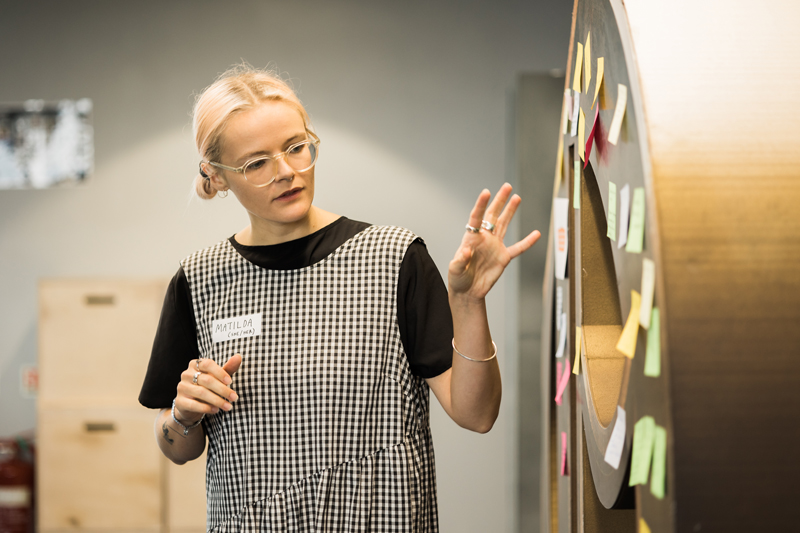
Boys feel like they are under attack
The empowerment of girls to refuse sex – a big part of relationship teaching in recent times – has led to what Lawrence-Jubb sees as a sense from boys that they are under “attack”. She thinks it is driving them closer to Tate’s ideology.
The “Me Too” and “Everyone’s Invited” anti-rape movements mean “people are talking about sexual assault and gender-based violence more than ever before”.
But she adds that some boys have approached her directly after school sessions on consent to say they felt the discussion “blamed” or “attacked” them as males – even though Lawrence-Jubb did not use male or female pronouns in those sessions.
“The real thing we’re grappling with as an organisation is how you can bring your young men along with what you are saying, and create spaces where they feel listened to.”
Sex education might be a fraught process these days but it was hardly taught at all back when Lawrence-Jubb was a teenager growing up in north London. Her line of work means she lacks any traditional English bashfulness when it comes to discussing sex.
She candidly recalls being “publicly shamed” for having pubic hair by a boyfriend, and experiencing “unwanted touching” during her time at school. “At the time that behaviour was extremely normalised in schools, and a lot of it still is,” she says. Lawrence-Jubb parks some blame on “dodgy rom-com” films like The Notebook – in which the romantic hero forces the girl to go on a date with him by threatening to fall from a Ferris wheel – and the dysfunctional love story played out in the popular Twilight books and films.
And she believes there is “definitely more stuff” that teachers have to “unlearn” than young people, who are “often a lot more clued up than teachers” in terms of appropriate language to use.
“Around gender and sexuality, teachers feel quite out of their depth. There is this huge fear of getting it wrong,” she says.
Don’t worry about getting things wrong
Her biggest advice for teachers is not to worry about getting it right all the time. “The first time, you will make mistakes.
“It’s about how you are vulnerable and say, ‘I don’t know the answer to that question, but I’ll get back to you’. And that you have a commitment to getting clued up on these topics.”
It was as an English Literature student at the University of Sussex that Lawrence-Jubb first became interested in “queer theory and sexuality”. After spending a year teaching young refugees in Athens, she joined a postgraduate course in social innovation, Year Here, in London, which involved spending six months working on a frontline service and finding solutions to problems that arose.
It was there that she met her Split Banana co-founder Anna Alexander – now head of PHSE at a school in east London. At the time, both were placed in schools and “quickly noticed the total lack” of RSE being taught.
After the placements, Lawrence-Jubb and Alexander held workshops for adults on “What I wish I’d known about sex and relationships” to figure out how they could best fill the gaps in young people’s understanding.
With the new RSE guidance for schools then about to come onstream, they felt “schools would need external support” and so formed Split Banana as a social enterprise, teaching RSE workshops with a focus on social and emotional health.
Their workshops for young people, conducted by a team of eight freelance facilitators, often include art-based activities – but no cringe-inducing banana-on-a-condom demonstrations.
“We realised that, when they are busy making or drawing something, young people are far less embarrassed to speak – they let their guard down a bit,” Lawrence-Jubb explains.
Split Banana operates a sliding payment scale; schools with less than ‘good’ ratings currently get the cheapest rates because “they need a leg up”.
Sometimes a request from a school for a workshop is prompted by a particular incident of inappropriate behaviour, with Tate’s name unsurprisingly being cited by schools with increasing concern. But she is wary of schools “platforming” Tate by focusing on him, which then “encourages young people to share his content”.
She argues that “instead of responding in a reactive way, schools need to go more to the root of the problem and give young people the skills to recognise harmful narratives”.
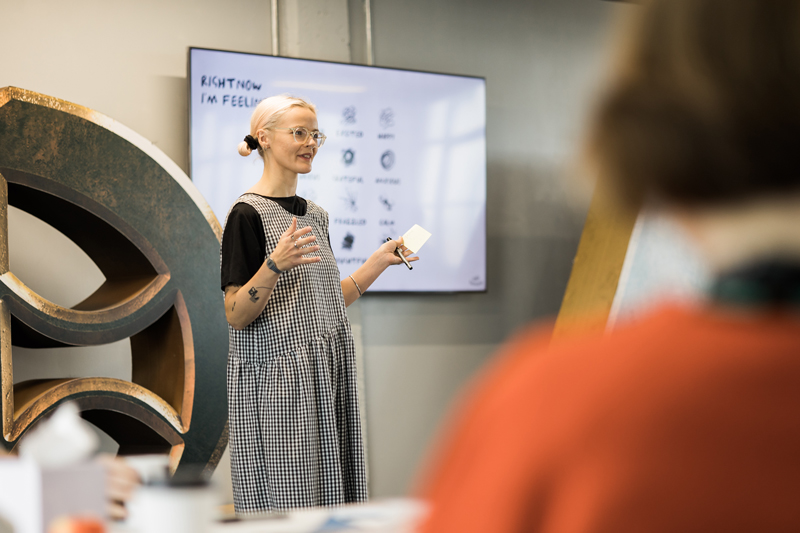
Curriculum controversies
Sex education lessons have been splashed across national newspapers in recent weeks. A Daily Telegraph investigation found children as young as 12 were asked how they felt about anal and oral sex.
Lawrence-Jubb says a lot of the headlines floating around about gender in RSE “aren’t accurate and have been taken out of context”, but she does not elaborate on which.
She says all Split Banana’s sessions are “age appropriate”. Most schools bring the company in to speak to years 10 and 11 “about specific content teachers feel slightly less comfortable with” – usually around sex and intimacy. There have been a lot of requests lately from schools for pornography workshops and consent and rape culture workshops.
She points out how being transgender is a protected characteristic as part of the Equality Act 2010.
“The RSE curriculum advises to teach about individual rights and ensure all young people feel included and safe, and that’s exactly what we do: affirming and supporting young people of all genders, orientations and experiences to feel safe and happy in themselves and their experiences.”
Split Banana runs pleasure and masturbation workshops – but only for years 12 and 13 and they include information on consent, sexual health and prioritising pleasure. “We do not teach in primary schools,” she says. “All of our in-school resources are age-appropriate and based on the statutory government guidelines.”
Approaching pornography
They also run pornography workshops for those in year 9 and above, citing the average age of pornography exposure as 13. A recent report from the children’s commissioner found four in five youngsters had encountered violent pornography before the age of 18.
“By having an open and honest conversation about pornography, we can support young people to build up their critical lens,” she adds. “This means if/when they come across it, they are equipped to understand how it might affect their expectations of sex and bodies.
It is normally boys who “dominate the conversations” during workshops, but she does not advocate single-sex groups as the way forward because “then you get different opinions and ideas”.
A common format Split Banana uses is to get pupils to read a scenario – for example, a group of boys “virgin shaming” a friend. They then discuss questions and write scripts around that scene to elicit empathy.
Pupils will “make jokes and mutter things under their breath” during these sessions.
The most common misconception Lawrence-Jubb hears from young people is around where the pleasure zones are located. Split Banana instructors show an illustration which likens the penis to the clitoris, comparing the different parts on one to the other – and demonstrating how “nobody’s that different from each other”.
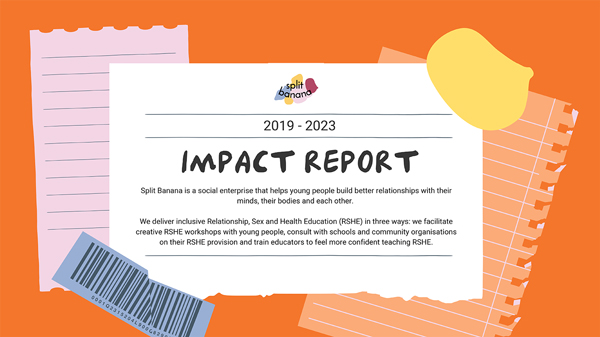
Still lots of gaps, but positive direction
She believes the current curriculum still contains “lots of gaps”, particularly in “longer term sex education”, which Split Banana is attempting to fill. That includes teaching about the menopause, the contraceptive choices people might make later in life, and more focus on LGBTQIA+ experiences.
They try to do this “throughout the curriculum”, rather than in “one-off lessons” through “orientations people might identify as” and “visuals like queer parents”.
Lawrence-Jubb is seeing a “pushback” against their work around gender ideology among some parent groups, but thinks it is a “small minority” being “blown up” because “the media absolutely loves the idea there is a division and really tries to hype it up”.
The government is drawing up new guidance for schools on supporting children who identify as transgender. Lawrence-Jubb welcomes the review and hopes ministers are “putting politics to one side and actually listening to the voices of young people, who overwhelmingly report wanting more, and better, RSE”.
She highlights a recent Sex Education Forum poll which showed that over half of youngsters want more information on topics like LGBTQIA+ experiences and pornography. This is “seemingly in direct contrast to what the government want to clamp down on.
“Most young people I speak to are really happy that they are finally getting this education… We’ve still got a long way to go, but we’re moving in a positive direction.”


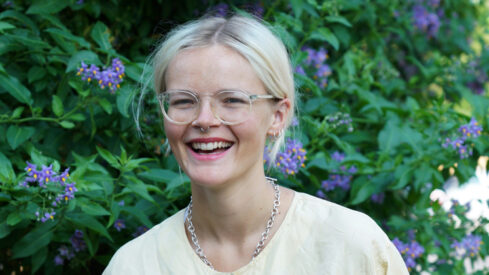




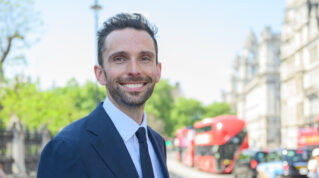






Your thoughts